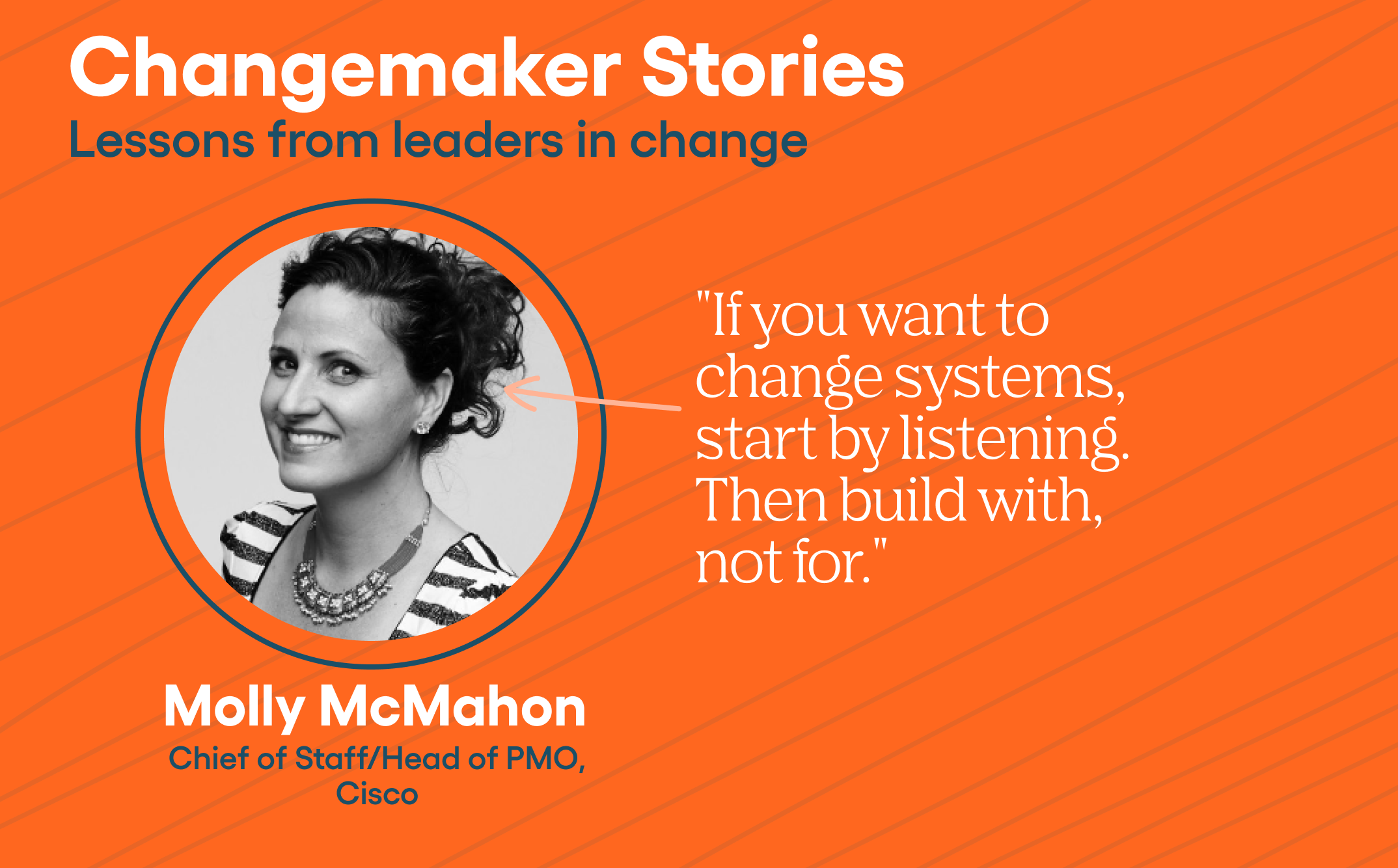

Welcome to Changemaker Stories from LOCAL – an ongoing series of personal interviews with leaders driving change across every industry and discipline. Because change shouldn’t mean going it alone.
Today we’re interviewing Molly McMahon, a changemaker of many talents. As an IDEO alumnus, TED Innovation Strategist, and ‘Unserious’ podcast host, Molly is a “relentless collaborator” with a passion for co-design. Throughout her career, Molly has partnered with leaders, teams and communities to help them realize their vision and drive growth using human-centered practices in strategy, marketing, org development and program/operations management.
Molly teaches us that driving change isn't about grand mandates but about nurturing human connections, fostering psychological safety, and empowering individuals to learn, grow, and collaborate. By embracing these human-centric principles, you can not only navigate change but also inspire a culture where true transformation flourishes.
True change is built on people, not just policies. In today's fast-paced world, leaders often grapple with how to drive meaningful change. From founding libraries in Central America to my current role as a marketing and strategy leader at Cisco, I've discovered a fundamental truth: true change isn't about rigid policies, but about people. This principle has guided every transformation I've led, emphasizing that human connection is our most powerful tool.
For me, the number one thing is that relationships matter the most. It doesn't matter if I'm designing a way of working or a complex go-to-market strategy; it's the strength of our connections that makes extraordinary things possible. Artificial intelligence can certainly help us go faster, but it's always grounded in those human relationships.
I believe in the power of “collective efficacy,” the shared conviction that "something so much better is possible together." This collective belief requires a significant amount of trust, which we build through empathy, understanding each other's needs, and developing a shared purpose. When teams share this belief, they are more resilient, innovative, and capable of achieving ambitious goals.
I've seen firsthand how vital sponsorship is. It's more than just mentoring. It means actively participating in someone's career trajectory and providing "air cover" when things inevitably go wrong. Sponsorship allows individuals the space to learn from mistakes and adapt. For leaders, actively sponsoring talent is a strategic investment that builds a more diverse, resilient, and high-performing team capable of navigating constant change.
“How might we…” is a powerful tool for invitation. Coming from my time at Ideo, I often use the "how might we..." framework to reframe challenges. This simple phrase transforms a problem into a collaborative opportunity. The "how" suggests that something is possible, the "might" acknowledges that there's going to be risk, and the "we" is an open invitation to solve the problem together. This inclusive questioning fosters a sense of shared ownership and welcomes diverse perspectives.
Being a lifelong learner is the ultimate skill. If you can be a lifelong learner, you're going to be fine in the world today. This requires a mindset of curiosity, and a safe environment where people feel comfortable exploring new ideas.
People learn best by doing. Experimentation and prototyping are low-risk ways to try something new and figure things out. As leaders, we must create opportunities for this. Adults learn when they have the opportunity to opt in and learn from their peers.
Belief is built through shared stories. To foster a culture of well-being and collective belief, I've seen the profound impact of personal narratives. At Ideo, we had a ritual called "Ideo Stories" where employees shared something personal about their lives. These moments fostered deep intimacy and understanding. It allowed us to work better with folks because we knew them at a much more intimate level, which is essential when dealing with the tough stuff that work inevitably brings.
Foundational processes are the unsung heroes in change. While they might not be "sexy," foundational project management processes are critical. Starting a project with a good brief and co-designing a brief with a group of folks sets the stage for success. Tools like briefs, scopes of work, milestones, and RACI charts help you understand how you fit in, what your job is, and how you can be successful with others. They provide the necessary clarity and structure for teams to align and execute effectively.
I believe that clarity is kindness. In a world that often feels overwhelming, I strive to offer predictability. We all know that at the beginning of a project there's excitement. In the middle, something is going to get stuck. At the end, there's a push to launch. By naming these predictable challenges, we can prepare our teams. When difficulties arise, simply reminding everyone, "we're right where we should be," can be incredibly reassuring. It fosters a sense of calm and control.
When I need inspiration, I turn to wild nature, especially the ocean. I moved to be next to the beach, drawn to rough, rugged cliffs, and wild seas. Being in nature helps me re-center and gain perspective, especially during challenging times. People need to be in nature more. It's a powerful reminder that even when things feel chaotic, there's a grounding force that can bring clarity and peace.